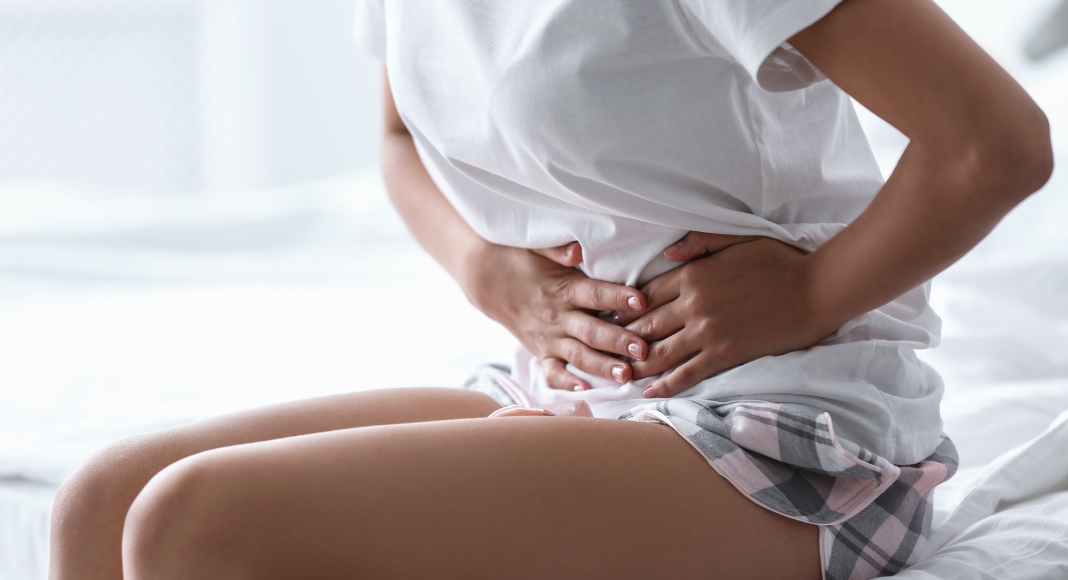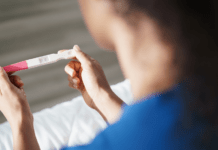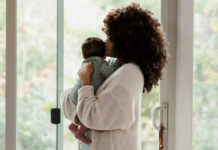Disclaimer: I am not a medical doctor nor am I an expert. I cannot provide medical advice. The information herein is meant to share my experience with endometriosis and provide some resources where you can learn more about how to handle your specific situation.

It wasn’t until age 30 that I truly began to understand “endometriosis.” I can’t say I even knew what it was prior to that. There were no pharmaceutical commercials advertising endometriosis and a way to manage it. I learned about endometriosis once I was well over a year into trying to conceive (aka get pregnant). My infertility diagnosis? Stage 4 endometriosis.
Despite exhibiting symptoms for over two decades, it wasn’t until I couldn’t conceive that my endometriosis really mattered. To that point, my symptoms were dismissed as just bad periods. I had already spent a couple of decades living my life around endometriosis—a disease I didn’t even know I had. Since middle school, I have spent days in pain. Those days most often coincided with my period. The pain was so bad, I couldn’t get out of bed and would sometimes become physically ill. I can still recall a middle school spring break trip when I lost an entire day to the pain.
By high school, I had at least accepted my reality. Midol cut the pain down, and I could push through even some of the worst pain. Until I couldn’t. After spending an entire afternoon in the dark nurse’s office, we scheduled an appointment with my primary care physician.
Her response? “This is normal.”
To address my main symptoms—severe pain and heavy bleeding—she prescribed birth control. The birth control did its job, and I didn’t question it further.
It’s not like women typically sit around and talk about, “How was your period this month?” “Oh, good. Yours?”
No, instead we hear jokes about “must be that time of the month” or PMS-ing or craving chocolate. Little did I know, the periods I experienced were not the same periods my friends experienced.
Now is the time to change the narrative and normalize an important issue in women’s health. This starts with education and information.
What is endometriosis?
Actually, very little is known about endometriosis. It is not known what causes endometriosis and can only accurately be diagnosed through surgery. Treatment is also somewhat elusive. But what most experts agree on: endometriosis is the presence of endometrial-like tissue outside the uterus. (See endofound.org and nancysnookendo.com)
What are my symptoms?
Endometriosis symptoms can be wide-ranging. Some may experience heavy periods. Some may experience pain, either during their period or all the time or a mixture of both. Some may experience infertility.
My specific symptoms include: extreme cramping during my period, to the point that it interferes with daily activity; heavy bleeding—bleeding through multiple super or super plus tampons combined with “back up pads” in a day; brown bloody discharge (or spotting) in the days leading up to my period; and the ultimate game-changer: infertility.
What should I do if I think I have endometriosis?
I started with my primary care physician. At the time, I did not know I had endometriosis, but she prescribed birth control. This helped manage most of my symptoms.
When I realized I was unable to conceive, I spoke to my OBGYN who referred me to a reproductive endocrinologist. Following surgery, I was officially diagnosed with endometriosis.
Knowing what I know now, I would arm myself with information from the experts (see references below) and be prepared to ask questions and advocate more for my health. Starting at age 12, periods were miserable. When I first spoke to my doctor, it was attributed to just part of having a period. But not all periods are created equal. Today, I would push harder on the medical community for an answer. I would ask specifically to rule out endometriosis because I have (and have always had) so many of the symptoms. Both websites referenced in the resource section have good guides and sample questions to ask if you suspect you have endometriosis.
What can I do to treat my endometriosis?
First, it is important to know endometriosis treatment is much different than symptom management. I started birth control pills in high school for symptom management. This drastically helped my pain. I was able to function somewhat normally, and ibuprofen or Midol would address any lingering pain. I also didn’t experience the super heavy bleeding while on birth control.
I received my endometriosis diagnosis following a laparoscopic surgery. This surgery helped treat by removing some of the tissue and a cyst—or endometrioma—I had on my right ovary. Since then, I have been on and off higher doses of birth control (or hormonal medication) to help suppress symptoms and flare ups.
Outside of medication and other forms of medical intervention, I have also noticed how changes in my diet and lifestyle make a difference in how I feel. While I am nowhere near eating gluten-free, the less gluten I eat, the less inflamed and bloated I feel. Similarly, the more exercise I get, including a walk around the block, the more energized and less fatigue I feel. Unfortunately, neither of these changes help with pain management. This issue in particular requires a doctor consult.
Ultimately, I plan to meet with different endometriosis surgeons to plan an excision surgery for removal of the disease.
Where can I learn more?
There are a lot of resources when you Google “endometriosis.” So far, speaking to my reproductive endocrinologist has been the most helpful. I can speak to and interact with a person who knows most about my case.
As to initial resources to help educate, I have found the Endometriosis Foundation of America and Nancy’s Nook to be the most relatable (and understandable). Both contain information that is easy to read and makes sense.
Overall, you are your best advocate when your body is telling you something is wrong. Listen to your body, ask the experts, and get another opinion if you feel dismissed.
References:
Endometriosis Foundation of America (https://www.endofound.org/)
Nancy’s Nook (https://nancysnookendo.com/)
This article was originally published in 2022.

















I too suffered with Endo for years not knowing it until my husband and I were trying to conceive. It’s a very tough journey looking for all the answers but what every woman suffering through Endo needs to know is that every persons body is different and every Endo journey looks different. I too sought medical attention/surgeries until I finally went the holistic route and that seemed to be the most successful for my body. I purchased the book Women Code and it has a wealth of information about the female body when it comes to infertility, cycles and menopause! I started with getting my hormone levels checked and researching how to balance my hormones through diet, exercise and even eliminating certain household/hygiene products. I definitely felt a difference and we now have two beautiful girls. Every story is different but for the future mama that is trying to conceive, don’t lose hope! ❤️